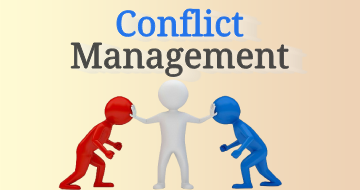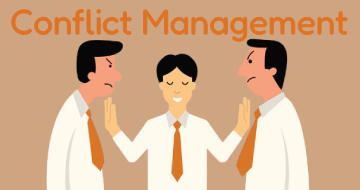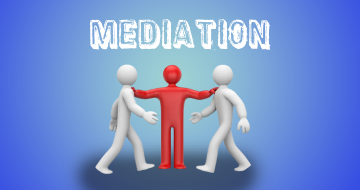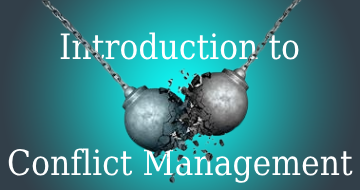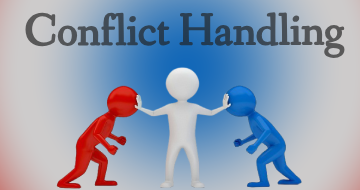IIRF Online > Business > Human Resources > Conflict Management > Conflict Management with Emotional Intelligence
Conflict Management with Emotional Intelligence by Udemy
Resolving Conflict with Emotional Intelligence | Enhancing Communication | Building Strong Relationships | Manage Stress
Course Highlights
- Recognize why some conflict is to be expected and why it is a part of healthy relationships.
- Compare and contrast the various modes that can be used in conflict resolution.
- Assess your own mode of conflict and how this helps or hinders you in working with conflict.
- Explain how emotional responses differentiate from rational responses in conflict.
- Determine your behavioural preferences around managing and working with time and how they impact upon your flexibility.
- Develop strategies for dealing with conflict and have some ideas about how to resolve difficulties.
- Discover how emotional intelligence is used to resolve conflict and build emotional bonds.
Skills you will learn!
Curriculum
6 Topics
Introduction to Conflict Management with Emotional Intelligence
Being Emotionally Intelligence about this Course on Udemy
Activity Booklet: Working with Conflict
The Learning Outcomes of Conflict Management with Emotional Intelligence
The Principles of Giving and Receiving Feedback
Tips to Develop your Emotional Intelligence in Challenging Situations
8 Topics
What is Conflict and Why it Occurs?
The Issue of Conflict - The Sources the Costs and the Benefits of Conflict
Factors and Questions to Consider in Resolving Conflict
The Importance of Trust in Resolving Conflict
Trust and the Wheel of Emotions
The Trust Equation
Building Trust using an Emotional Bank Account
The Issue of Bullying at Work
1 Topic
Activity Booklet: Exploring Conflict and What it Means
12 Topics
Introduction to this Module on Assertiveness and the Learning Outcomes
What are your Rights and Responsibilities around Assertiveness?
Exploring Some Barriers to Assertiveness
The Choices of Behaviour Open to You in Expressing Assertiveness
Understanding what Aggressive Behaviour is
Understanding what Passive Behaviour is
Understanding what Assertive Behaviour is
Recognising the Differences Between Aggressive Passive and Assertive Behaviour
Some Methods and Techniques for Expressing Assertiveness
Ways to Say "No" Assertively and Feel Good About It
The Rules of Assertion and Assertive Behaviour
The Review of this Module on Assertiveness
1 Topic
Activity Booklet: The Rules of Assertiveness
9 Topics
The Learning Outcomes of this Module on Understanding Toxic Situations
Toxic Situations - The Caustic Opener and Mind-Reading
Toxic Situations - Everyone. Forever. and That's You All Over
Toxic Situations - The Blame Game and Exaggerate? Me?
Toxic Situations - You Say Tomato and Yesterday's Hangover
Toxic Situations - What I Mean Not What I Say and Irreconcilable Differences.
Detoxifying Conflict
Further Methods of Resolving Conflict
Reviewing this Module on Understanding Toxic Situations
2 Topics
Activity Booklet: Toxic Situations
Understanding Toxic Situations Case Studies
11 Topics
The Emotional Intelligence Cycle - Interrelations of Environment and Behaviour
How Communication Underpins Emotional Intelligence
The 4 Ways you can Respond to Emotional Events
How Easily Emotions Escalate in Conflict Situations
The 3 Distinctive Styles for Handling Emotion
The Increasing Intensity of Conflict
When Attitude Drives Behaviour - The Cycle of Behaviour
Key Ways to Managing Fight and Flight Behaviour
Tips to Prevent a Freeze Response
The Awkward Silence
The Ideal Behaviours for Ideal Interactions
8 Topics
The Chimp Paradox - A Powerful Mind Management Model
One Minute Observation Test
The Brain and The Chimp Paradox
The Basic Anatomy of the Brain Covered in about 5 Minutes
What Basically Drives the Chimp
How the Chimp Works - Why is it so Powerful and Difficult to Manage
The Computer Part of the Mind Management Model
Interesting Insights into Emotions and Higher Order State
1 Topic
Activity Booklet: The Chimp Paradox
14 Topics
Assessing the Ways That You Work with Conflict
The Thomas Kilmann Conflict Mode Model Explained
The Compromising Mode of Managing Conflict
Questions to ask Yourself if you have High and Low Compromising Scores
The Competing Mode of Managing Conflict
Questions to ask Yourself if you have High and Low Competing Scores
The Collaborating Mode of Managing Conflict
Questions to ask Yourself if you have High and Low Collaborating Scores
The Avoiding Mode of Managing Conflict
Questions to ask Yourself if you have High and Low Avoiding Scores
The Accommodating Mode of Managing Conflict
Questions to ask Yourself if you have High and Low Accommodating Scores
Some Basic Skills in Conflict Resolution Reviewed
Understanding Conflict Modes
6 Topics
The Learning Outcomes of this Part of the Course on Flexibility
How your Personal Preferences Influence your Flexibility
The 2 Flexibility Types - Planning and Spontaneous Types
Ways to be More Flexible Irrespective of your Preferences and Your Type
How you can Work More Effectively with Change
Reviewing this Part of the Course on Flexibility
1 Topic
Activity Booklet: Assess and Focus on How you Use your Time Preference
8 Topics
The Agreement Box - The All Important Area of Agreement
How the Use of Words Can Affect Conflict
Considering Inflection and Intonation in Your Spoken Communication
Working with Third Party Intervention When it Becomes Necessary
Course Takeaways: Some Wisdom Around Working with Conflict
Review of the Learning Outcomes Covered in this Course
Activity Booklet: Review your Learning
Lightbulb Moments Resource Cards - Conflict Resolution
2 Topics
How to Access your Udemy Certificate
Bonus Lecture
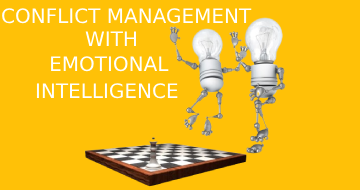
Conflict Management with Emotional Intelligence



